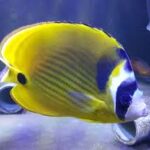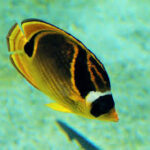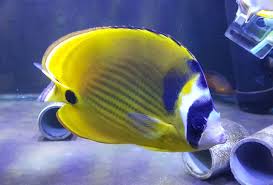
In Chinese culture, longevity and immortality are highly revered ideals, representing not only the extension of life but the achievement of harmony with the universe. At the heart of these concepts stands the dragon, an ancient symbol of power, strength, and vitality. The dragon’s association with longevity and immortality is deeply woven into the fabric of Chinese philosophy, art, and tradition. The dragon is not just a mythical creature; it embodies a cosmic force believed to regulate the life force, Qi, and balance the elements that sustain life. Through various ceremonial practices, the dragon continues to play a pivotal role in invoking and honoring these profound desires for eternal life.
This article explores the symbolic connection between dragons and longevity in Chinese culture, delving into the rituals, customs, and philosophical principles that emphasize the role of the dragon in ceremonies dedicated to the celebration of long life and immortality.
The Dragon: A Symbol of Immortality and Vitality
In Chinese mythology, the dragon is a revered symbol of immortality and strength. Unlike the fearsome dragons found in Western mythology, the Chinese dragon is benevolent, seen as a protector and bringer of prosperity. It is often associated with water elements such as rivers, lakes, and oceans, which are crucial for sustaining life and agricultural success. These associations with the sustaining forces of nature make the dragon a potent symbol of the vitality required for longevity.
The dragon’s attributes go beyond mere physical strength; it is believed to possess the ability to connect the realms of heaven, earth, and the human world. The Chinese dragon is often depicted as having control over the elements of water, rain, and winds, which all play essential roles in the sustenance of life on Earth. In this way, the dragon becomes a representation of the cyclical flow of life and death, embodying the connection between life’s inevitable renewal and the continuity of existence.
Because of its close relationship with natural elements, the dragon has come to symbolize the sustenance of vitality and life force, qualities directly linked to the pursuit of longevity. Its importance as a symbol of life is reflected in both the beliefs surrounding the dragon’s powers and the Chinese approach to living a long, healthy life. The dragon is also frequently associated with the Yang principle, which embodies active, life-affirming energy. As such, the dragon is not just a symbol of longevity but also an active force in the preservation and cultivation of life.
The Dragon in Traditional Chinese Medicine
In Chinese culture, longevity is intimately connected to the practice of Traditional Chinese Medicine (TCM), a holistic system that seeks to balance the body’s energy and prevent illness. The dragon’s influence in TCM is significant, as it is often seen as a guiding force in maintaining balance between the body’s internal energies.
In TCM, health is believed to be a reflection of the flow of Qi (life energy) within the body, as well as the harmony between the five elements: wood, fire, earth, metal, and water. The dragon, as a symbol of elemental balance, is invoked in various ways to restore equilibrium and promote well-being. The dragon’s ability to command water and regulate the flow of natural elements mirrors the way TCM practitioners aim to align the body’s internal energy and ensure longevity.
One of the most important aspects of Chinese medicine related to longevity is the concept of Jing (essence), which is considered to be the foundation of life. The preservation and enhancement of Jing are thought to lead to a longer and more prosperous life. The dragon is symbolically linked to Jing, representing vitality and longevity. In ancient practices, dragons were thought to be able to preserve Jing, ensuring health and vitality for those who sought it. Thus, dragons in Chinese medicine are not only seen as protectors of life but also as guides to long and healthy living.
Ceremonial Practices and Festivals
The dragon’s association with longevity and immortality is especially prominent in various Chinese festivals and ceremonies that celebrate the passing of time and the wish for a long, prosperous life. These rituals and ceremonies are deeply ingrained in the cultural fabric of China and reflect the value placed on extending human life, achieving balance, and reaching a state of immortality.
The Dragon Boat Festival: A Celebration of Longevity
One of the most famous celebrations involving the dragon is the Dragon Boat Festival, or Duanwu Jie (端午节), which takes place on the fifth day of the fifth month of the lunar calendar. While the festival is often associated with the poet Qu Yuan, it also has deep roots in the belief in health, longevity, and protection from evil spirits.
The dragon boat races, a central feature of the festival, are held in honor of the dragon, which is believed to control water and bring good fortune. The ritualistic act of racing dragon boats is thought to ward off evil spirits and ensure a healthy, long life for participants. The dragon boat is also believed to represent the protection and vitality granted by the dragon, whose energy is invoked to bring strength and prosperity. The festival is filled with vibrant colors, dragon motifs, and rituals designed to promote health and long life.
In some regions of China, dragon boats are adorned with symbols of longevity and immortality, and it is common to see offerings to the dragon spirit, including food, incense, and prayers for health and well-being. These acts of devotion are designed to secure the protection of the dragon, ensuring that individuals will live a long and prosperous life, free from illness and misfortune.
Birthday Celebrations for Elders: Honoring Longevity
Another important aspect of Chinese culture where the dragon is invoked is during birthday celebrations for elderly individuals. In Chinese society, age is revered, and special rituals are performed to honor the elderly and wish them a long life. The dragon, as a symbol of vitality, is often featured in these celebrations, particularly in the decorations and offerings made in honor of the elderly.
The Shou character (寿), meaning “longevity,” is commonly seen in these celebrations, often accompanied by a dragon motif. In traditional Chinese birthday banquets, particularly those for individuals reaching significant ages (such as 80, 90, or 100), symbolic offerings are made to ensure continued health and long life. These include foods known for their health-promoting properties, as well as dragon-related symbols, which represent the desire for the individual to live a long, prosperous life.
These celebrations are not just about marking the passage of time but also about expressing gratitude for the individual’s longevity and the wisdom they have accumulated. The presence of the dragon in these celebrations emphasizes the connection between life’s vitality and the divine forces believed to govern longevity.
Taoist Immortality Ceremonies
Taoism, one of the most influential philosophies in China, places great importance on the concept of immortality, not only in the physical sense but also in the spiritual sense. Taoist practices for achieving immortality include the cultivation of internal energy, physical health, and spiritual harmony. The dragon, as a symbol of life force and vitality, is often invoked in Taoist rituals aimed at achieving immortality.
In Taoist temples, offerings to dragons are made during special ceremonies dedicated to longevity and immortality. These ceremonies often include the chanting of sacred texts, the burning of incense, and the performance of rituals designed to align the individual with cosmic forces and promote eternal life. The dragon’s presence in these rituals symbolizes the active force of vitality, helping practitioners connect with the divine and achieve spiritual transcendence.
Philosophical and Cultural Significance of the Dragon and Longevity
The dragon’s role in Chinese ceremonies and traditions surrounding longevity and immortality is more than just symbolic. It reflects a deep cultural and philosophical belief in the interconnectedness of all things in the universe. In Chinese thought, life is seen as a constant flow of energy, constantly transitioning between birth, growth, death, and renewal. The dragon embodies this cyclical nature of existence, representing the eternal flow of life and the harmony between heaven, earth, and humanity.
In many ancient Chinese texts, the dragon is described as a being that is not bound by time or space. Its presence in longevity ceremonies reflects the belief that immortality is not just a human desire but a cosmic principle that transcends the limitations of the physical world. The dragon’s role as a protector of life and vitality serves as a reminder that longevity is not merely the extension of years but the cultivation of balance, harmony, and spiritual alignment with the universe.
Conclusion
The dragon’s role in Chinese culture, particularly in ceremonies that celebrate longevity and immortality, is a testament to its enduring symbolic power. Whether through festivals like the Dragon Boat Festival, Taoist rituals for immortality, or birthday celebrations for the elderly, the dragon is a constant presence in the Chinese quest for long life and eternal vitality. The dragon is more than just a mythical creature; it is a symbol of the harmony between the forces of nature and the human spirit, representing the aspiration for health, longevity, and immortality.
As China continues to evolve and modernize, the ancient reverence for the dragon and its association with longevity remains a central theme in the cultural consciousness. Through its ceremonies and symbols, the dragon continues to embody the eternal flow of life, reminding the people of China of their deep connection to the natural world and their desire to live long, prosperous, and harmonious lives.










